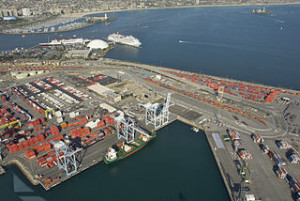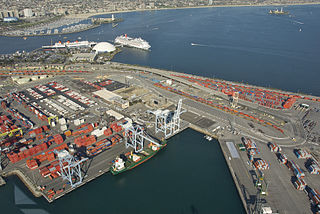 Despite the months-long congestion at U.S. West Coast ports, the terminals saw a great 2014 with volumes up amid the ongoing recovery of the American economy.
Despite the months-long congestion at U.S. West Coast ports, the terminals saw a great 2014 with volumes up amid the ongoing recovery of the American economy.
But U.S. stakeholders are worried that the impasse could worsen and create a trade backlash as negotiations between terminal operators and longshoremen drag on and the cargo stack-up grows.
Reports said the congestion issue at the U.S.’s biggest ports at Long Beach and Los Angeles is costing shippers millions in weekly losses. Even UPS cited the congestion as partly to blame for its reduced earnings last year, saying “the network was somewhat disrupted by volume fluctuations caused by the West Coast port dispute.”
Amid these troubles, however, statistics show that Asia-U.S. cargo movement shot up to near-record levels last year as the American economy continues to rebound and influence increased consumer spending by the middle class.
Movements of shipments from Asia to the U.S. in 2014 increased 6.8% year-over-year to register 14.23 million TEUs, according to Zepol, a U.S. company that tracks trade data. Last year’s total Asia-U.S. shipments were just short of the record 14.24 million TEUs recorded in 2007.
Reports said the traffic in containers began to rebound in 2013 and accelerated in 2014, especially for trade in auto parts, furniture, toys, and clothing.
West Coast seaports handle about one-quarter of the nation’s trade, or about $1 trillion worth of imports or exports in the U.S. Los Angeles and Long Beach handled 41 percent of the US container traffic in 2013.
At present, the situation at the ports appears to be at a standstill, with labor and management accusing each other of instigating or prolonging the conflict.
The greatest fear of industries today is a total work stoppage should efforts to resolve the standoff fail. U.S. enterprises, already experiencing severe disruptions and delays because of congestion at the ports, said a breakdown in contract talks would be “catastrophic.”
They noted that angry statements made recently by both sides pointed to the possibility of either a strike by labor or a lockout of workers by employers.
Fitch Ratings said recently that if the capacity and labor crisis are not resolved, the ports risk losing shippers’ trust permanently. This, said the financial expert, could prompt businesses to consider long-term alternatives to the west coast port gateway, noting greater use of late of the east coast terminals, airfreight delivery as well as Canada, even though these options add to their costs.
Photo: Dave Proffer





